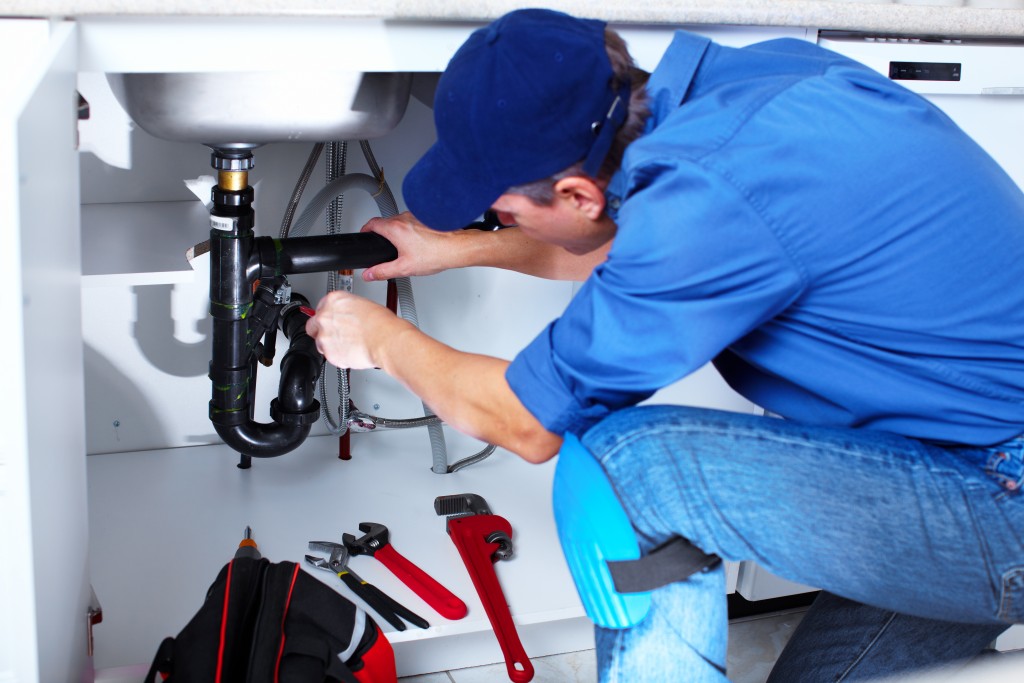
Plumbers install and repair pipes and fixtures used for water distribution and wastewater disposal in homes, businesses and industrial buildings. They read blueprints and building codes to determine the layout of plumbing systems, then follow strict safety protocols when installing or repairing them.
They often work on-call for emergency services, responding to calls from homeowners to fix leaking pipes or other problems. This requires them to have strong problem-solving skills and knowledge of a wide range of plumbing issues.
Installing and Repairing Pipes and Fixtures
Plumbing is a hands-on career, and plumbers spend most of their time on-site working with clients. They may work with contractors and construction teams to install new plumbing in a building, or they may be called to repair or replace existing pipes and fixtures. This includes laying out the piping, cutting into walls and floors, and measuring to ensure everything fits together properly.
Plumbers also use tools to inspect pipework for issues, including leaks and blockages. They use specialized equipment to locate these problems, including video cameras and pressure gauges. This job requires strong attention to detail and the ability to interpret complex information quickly and accurately.
In addition, plumbing involves working with water and sewage systems, which are dangerous and require specific training and certification to work on. A plumber in Canberra often works with other plumbers to ensure safety and compliance with local building codes and regulations. This can include electricians, carpenters, general laborers and heating and ventilation engineers.
Troubleshooting Drains and Sewers
When sewer lines back up, plumbers must inspect and repair them. This involves using special video equipment to identify the source of the problem, which can be a tree root invasion or shifting soil that has caused the pipes to crack and deteriorate. Plumbers may also need to install or replace parts like sewage pumps and valves.
Some plumbers specialize in commercial plumbing, working on water supply lines and fire sprinkler systems in office buildings, schools, hospitals, factories, and other large spaces. These jobs require more complex plumbing systems and often involve coordinating with other professionals to ensure that the plumbing meets all building codes and regulations. In addition, these plumbers often need to be on-call for emergency services, such as when a pipe bursts or a toilet overflows. This can require them to work evenings and weekends. They must also stay up-to-date on the latest technologies and techniques in their field. They may also be responsible for educating clients about how to avoid common plumbing problems like clogged drains and leaky faucets.
Performing Inspections
Plumbers are responsible for inspecting, repairing, and maintaining the piping and
fixtures that distribute water, gas, and waste in residential and commercial settings. They may work on small plumbing systems in homes or large plumbing infrastructures in hospitals, schools, retail buildings, and manufacturing facilities. They interpret blueprints and building codes to plan pipe installations and ensure they meet standards and regulations.
As part of their job, plumbers use testing equipment to identify and locate issues with pipes and drains. They also inspect sewers and septic tanks for any signs of leaks or clogs. This requires them to be able to work safely in confined spaces and at heights. They must also be comfortable using hand tools and working with electrical devices. Plumbers often work with other professionals, including electricians and carpenters, on construction sites. Therefore, excellent communication skills are essential for this career. They must also be punctual and reliable, as clients rely on them to arrive at their locations at scheduled times.
Providing Customer Service
Plumbers must be able to work with customers to understand their plumbing needs and explain the costs and benefits of various repair options. They may also need to describe how to maintain pipes and fixtures to avoid future problems.
Plumbing professionals often need to be creative when solving problems or coming up with new solutions. They may need to think outside of the box for unconventional issues like clogged drains or water heater malfunctions. They also must be able to read and interpret blueprints to determine the location of pipes and other elements before starting construction.
Finally, plumbing workers must be able to handle physical demands of the job. This includes working in contorted positions, lifting heavy objects and climbing ladders. They must also be able to tolerate harsh working conditions, such as extreme temperatures and contaminated materials. In addition, they must be comfortable with the thought of performing dangerous tasks, such as opening up a clogged sewer pipe with a snake or cutting through a gas line with a saw.